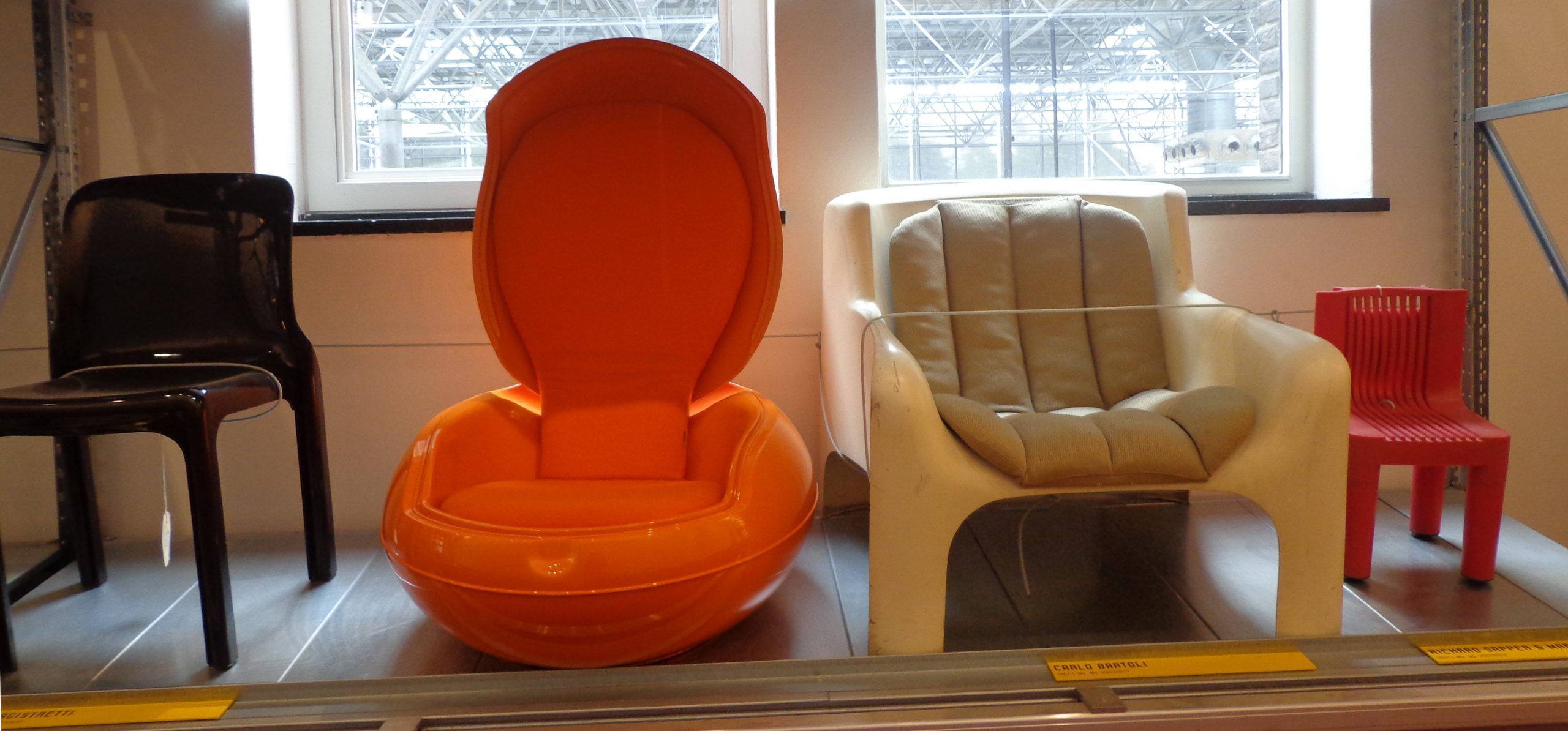Along a narrow corridor in the architecture faculty stands a curious display. At first glance, you may dismiss it as a storehouse of forgotten chairs. However, it’s a lot more than that.
The Stoelen Collectie Delft is a collection of rare chairs that give you an insight into the evolution of design over the past century.
Started in 1957 by a group of students, today there are over 300 chairs in the collection. “A lot of them have been acquired by students at flea markets and professors of interior design over the years,” explains Charlotte van Wijk, Researcher and Curator, who is in-charge of the collection. Some of the chairs have also been donated to the university by families of designers and old offices that were relocating.
The latest chairs in the collection include a cubical chair designed by Dutch architect Radboud van Beekum. The chair was part of an early attempt at Do-It-Yourself furniture and even it wasn’t very successful at the time, the design itself was hugely popular.
Among the different segments of the exhibition are 19th century chairs put together using planks of wood, those made by Scandinavian designers from the 1950s and 1960s and designs by well known Dutch architects.
One of the most interesting chairs in the collection is a bright orange Garden Egg chair; an early prototype of designer Peter Ghyczy’s acclaimed 1968 design. There’s also small collection of early office chairs which may make you think twice about complaining about the ergonomics of your own chair.
“We have tried to structure the exhibition according to the material used, the construction and the principle,” explains van Wijk. “For instance, we have a section of chairs from the early decades when designers were experimenting with the use of plastic in furniture,” she explains.
Some of the key chairs in the collection were designed by Gerrit Thomas Rietveld, Dutch furniture designer and architect from the early 19th century. The Rietveld chairs, along with some 17th century chairs and more recent prototypes are part of the “secure collection”, which can only be viewed upon request.
“Besides the permanent exhibition, the chair collection is involved in exhibitions in museums through loans, and we organise conferences accessible to students and others. We sometimes have students from the department of furniture design, Koninklijke Academie van Beeldende Kunsten Den Haag who study our chairs for one of their projects. We also make the chairs available to researchers in the field of design history or restoration.”
You can see the permanent collection during working hours in the BK faculty.



Comments are closed.